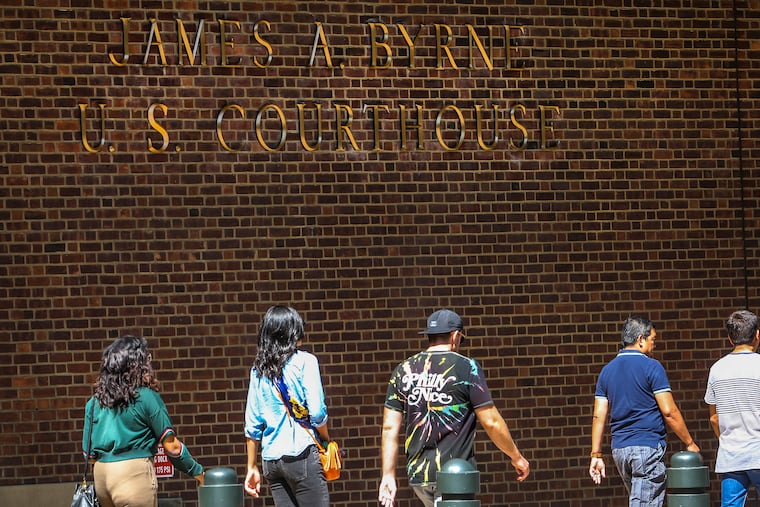Court rules in favor of Philadelphia’s ban on asking job applicants their salary history
City officials said the decision is a green light for them to begin enforcing the law, but they haven’t set a timetable.

In a decision that could have national implications for the wage-equity movement, a federal appeals court Thursday sided with the City of Philadelphia, saying it can ban employers from asking job applicants their salary history.
The U.S. Court of Appeals for the Third Circuit partly reversed a 2018 lower-court decision that said the city could not ban employers from asking about salary history but could ban them from relying on it to set wages. The law has been in limbo since 2017, when the Greater Philadelphia Chamber of Commerce sued the city, claiming the ordinance violated the commercial-speech rights of employers.
Proponents of the law, which include the city and women’s advocates, say it would cut down on gender- and race-based discrimination that contributes to the wage gap by keeping unfair salaries from snowballing through an employee’s career.
Studies suggest women on average make about 80 cents for every dollar a man does. That gap is even higher for women of color.
City officials said the decision is a green light for them to begin enforcing the law, but they haven’t set a timetable. The Philadelphia Commission on Human Relations would be in charge of enforcing the law, and employers found in violation could face fines and litigation. City Solicitor Marcel S. Pratt, who argued the case before the appeals court, said the city hopes to work with the Chamber on implementation.
The Chamber said in a brief statement it’s “clearly disappointed” and is reviewing potential next steps.
» READ MORE: Here’s what policymakers are doing (and not doing) to fix the wage gap
The 67-page unanimous opinion representing the three-judge panel was written by Judge Theodore McKee, who wrote that while the provision does limit employers’ speech, it is “only because that limitation prevents the tentacles of any past wage discrimination from attaching to an employee’s subsequent salary.”
The appeals court disagreed with U.S. District Judge Mitchell S. Goldberg, who favored the Chamber’s argument that the City of Philadelphia failed to provide evidence showing its law would actually tamp down on the wage gap. McKee wrote that though the city’s evidence was “sufficient,” legislatures aren’t required to provide data showing the efficacy of a proposal if it’s an “innovative solution” that hasn’t been widely implemented previously.
The Chamber, backed by Philadelphia companies including Comcast Corp., contended in legal filings that the law burdens businesses in their efforts to evaluate what is a competitive salary offer in a tight labor market.
Rick Grimaldi, a Philadelphia management-side workplace attorney and partner at Fisher Phillips, said the law is part of what he considers “an overreach generally in the city that is somewhat punishing to employers and businesses trying to succeed” here.
“Couple that with the taxes and the regulatory regime,” he said, “we really do jeopardize chasing businesses out of the city.”
Grimaldi said this ruling isn’t the end of the conversation. The Chamber can petition the U.S. Supreme Court to review the decision. Legal challenges also could be brought in other jurisdictions, and if a different circuit rules against a salary-history ban, it could set up a showdown in the Supreme Court.
» READ MORE: How slow-to-act Philadelphia came to pass some of the most cutting-edge worker laws in the nation
Rue Landau, executive director of the Philadelphia Commission on Human Relations, said the law, which was unanimously passed by City Council in 2017, comes amid a variety of worker-protection legislation Philadelphia has implemented in recent years. This one, she said, "should be held up as one that is all about equality and protecting people’s civil rights.”
“I’ve never understood the argument against it,” she said.
Former City Councilman Bill Greenlee, who championed the bill, said “this is just the right thing to do,” despite concerns from businesses and corporations in Philadelphia.
“They were agreeing that there was wage inequity, but they’re saying this won’t solve the problem,” he said. “Well how do you know if you don’t try it?”